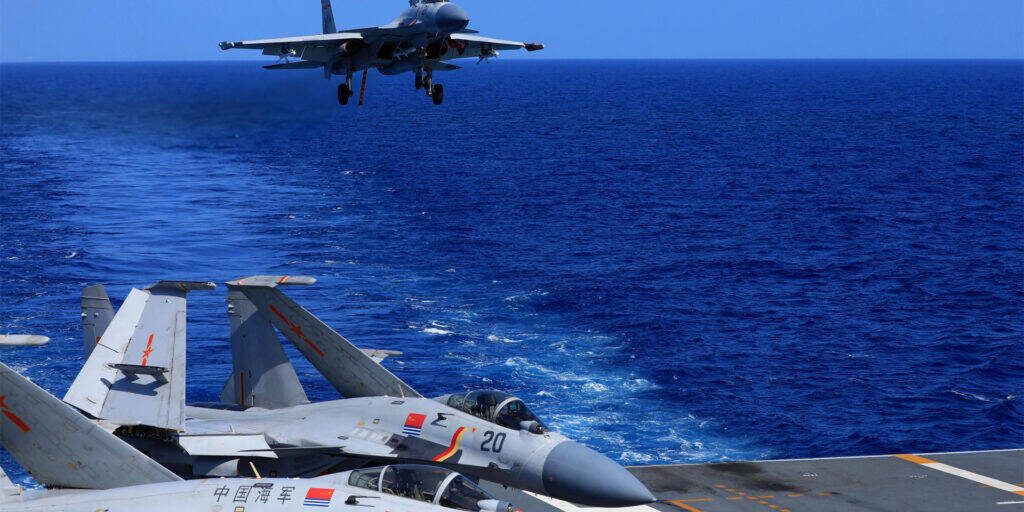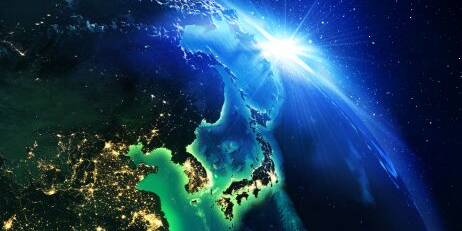Author: Montek Singh Ahluwalia, India Planning Commission, for East Asia Forum
At first glance, regional security issues seem to be remote from the problems of climate change. They involve exercising diplomatic and military power, often in collaboration with other like-minded countries, to ensure that the balance of power in the region is not disturbed. Regional security in this sense is a precondition that allows countries to concentrate on economic growth by expanding trade and investment, which contributes to faster growth.
The Asia Pacific region has had its share of potential conflict points — North Korea, Taiwan, the Senkaku (Diaoyu) Islands — but until recently these were perceived as manageable and the overall environment was relatively secure. This has changed markedly in recent years with the rise of geopolitical tension between the United States and China, which is associated with the economic rise of China and its declared objective of challenging the United States both militarily and technologically. Climate change will add new dimensions to these tensions on several counts.
The United Nations has estimated that the world is set to see a temperature increase of about 2.5 degrees Celsius by 2100. The adverse impacts of global warming on this scale are well known. Higher temperatures will reduce human and land productivity, jeopardising food production in many countries.
Variable rainfall and more frequent extreme weather events will inflict substantial damage. And responding to these events will soak up resources that could have otherwise been spent on raising productivity or increasing social protection. Accelerated melting of the polar ice caps and the Himalayan glaciers will lead to a rise in global sea levels by an estimated 0.44–0.76 metres by 2100. Some scientists warn that actual rises may exceed these figures.
Rising sea levels could see smaller island states in the Pacific and Indian oceans mostly or entirely submerged by 2100. The Republic of Kiribati is particularly vulnerable because its highest point is less than 2.5 meters above sea level and the Maldives is in a similar situation. In such cases, there may be no alternative to relocating the entire population. Though Kiribati and the Maldives have small populations — 117,000 and 500,000 respectively — one cannot assume that other countries will welcome their displaced populations.
Most countries in the Asia Pacific region will not face comparable threats from rising sea levels but many will experience serious flooding. Bangkok, Jakarta, Ho Chi Minh City, the Sundarbans area in Bangladesh and the Pearl River Delta in China are all vulnerable. Significant migration away from these areas may be unavoidable. Though this migration is expected to occur domestically, it will come with significant costs and it could lead to internal political instability if not handled effectively. This could easily trigger some cross-border migration, which would only intensify regional security problems.
Climate change can also intensify existing territorial conflicts. China lays claim to a large part of the South China Sea in the form of its nine-dash line — a claim that is contested by Malaysia, Vietnam, Indonesia and the Philippines. The Philippines referred the dispute to the International Court of Justice which ruled against China. China unilaterally rejected the Court’s finding.
One can imagine climate change creating new conflicts if rising sea temperatures lead to fish populations moving into areas claimed by China under its nine-dash line. If China denies fishermen access to these areas, it could pose a threat to livelihoods and lead to conflict.
Climate change could also create new tensions over competition for water. The Mekong River begins in Tibet and its 4700 kilometre journey to the sea takes it through China, Myanmar, Laos, Thailand, Cambodia and Vietnam. The latter four countries established the Mekong River Commission in 1995 as a system for shared management of the river. But China is not a member of this arrangement and it controls the Mekong upstream.
In 2019, the water level in the Mekong dropped to its lowest level in 100 years. This may have been due to natural environmental factors, such as lower rainfall and glacial melt, but concern was expressed that the fall in water levels was caused by upstream dams constructed to divert water for use in China. Such diversion could cause more problems if water scarcity worsens. Similar concerns have been expressed in India on China’s reported plans to divert water from the Tsang Po River as it flows east through Tibet, reducing the water available in the river when it becomes the Brahmaputra on entering India.
International law provides only general guidelines for countries to share water based on some criteria for fairness. What constitutes a ‘fair share’ is undefined, but the law provides that once an agreement is reached it must be strictly observed. In the absence of any agreement there is little that can be done. Since climate change will exacerbate water scarcity and increase the frequency of droughts. It also means that what was deemed a fair share at the time an agreement was made may not be seen as fair during periods of intense scarcity.
Climate change is also expected to increase the occurrence of extreme weather events, such as cyclones or tsunamis. This suggests a need for institutionalising cooperation among navies and other security forces in the region to help with the immediate challenge of rescuing people in the aftermath of disasters. Small countries are unlikely to have a sufficient supply of internal assets or even trained personnel to deal with sudden and unexpected disasters.
The regional security aspects of climate change need to be factored into decision making more so than ever. International cooperation on climate change mitigation is of utmost importance — not only because of its adverse effects on economic outcomes, but also because of the way it impinges on security issues in the region.
The original article can be found here at East Asia Forum.
Montek Singh Ahluwalia is an economist and former Deputy Chairman of the Planning Commission in India.
This article appears in the most recent edition of East Asia Forum Quarterly, ‘Comprehensive Regional Security’, Vol 14, No 4.
Feature Image: Mekong River, Vietnam / via Wikimedia Commons


